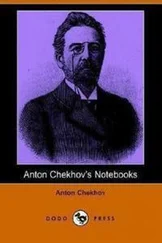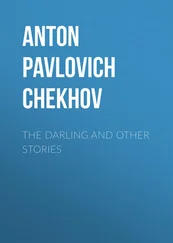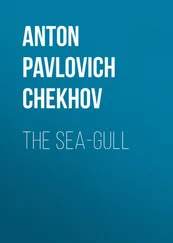Антон Чехов - Letters of Anton Chekhov
Здесь есть возможность читать онлайн «Антон Чехов - Letters of Anton Chekhov» весь текст электронной книги совершенно бесплатно (целиком полную версию без сокращений). В некоторых случаях можно слушать аудио, скачать через торрент в формате fb2 и присутствует краткое содержание. Год выпуска: 2004, Жанр: Прочая документальная литература, на английском языке. Описание произведения, (предисловие) а так же отзывы посетителей доступны на портале библиотеки ЛибКат.
- Название:Letters of Anton Chekhov
- Автор:
- Жанр:
- Год:2004
- ISBN:нет данных
- Рейтинг книги:5 / 5. Голосов: 1
-
Избранное:Добавить в избранное
- Отзывы:
-
Ваша оценка:
- 100
- 1
- 2
- 3
- 4
- 5
Letters of Anton Chekhov: краткое содержание, описание и аннотация
Предлагаем к чтению аннотацию, описание, краткое содержание или предисловие (зависит от того, что написал сам автор книги «Letters of Anton Chekhov»). Если вы не нашли необходимую информацию о книге — напишите в комментариях, мы постараемся отыскать её.
Letters of Anton Chekhov — читать онлайн бесплатно полную книгу (весь текст) целиком
Ниже представлен текст книги, разбитый по страницам. Система сохранения места последней прочитанной страницы, позволяет с удобством читать онлайн бесплатно книгу «Letters of Anton Chekhov», без необходимости каждый раз заново искать на чём Вы остановились. Поставьте закладку, и сможете в любой момент перейти на страницу, на которой закончили чтение.
Интервал:
Закладка:
In 1890 his younger brother Mihail was taking his degree in law at Moscow, and studying treatises on the management of prisons. Chekhov got hold of them, became intensely interested in prisons, and resolved to visit the penal settlement of Sahalin. He made up his mind to go to the Far East so unexpectedly that it was difficult for his family to believe that he was in earnest.
He was afraid that after Kennan's revelations about the penal system in Siberia, he would, as a writer, be refused permission to visit the prisons in Sahalin, and therefore tried to get a free pass from the head of the prison administration, Galkin-Vrasskoy. When this proved fruitless he set off in April, 1890, with no credentials but his card as a newspaper correspondent.
The Siberian railway did not then exist, and only after great hardships, being held up by floods and by the impassable state of the roads, Chekhov succeeded in reaching Sahalin on the 11th of July, having driven nearly 3,000 miles. He stayed three months on the island, traversed it from north to south, made a census of the population, talked to every one of the ten thousand convicts, and made a careful study of the convict system. Apparently the chief reason for all this was the consciousness that "We have destroyed millions of men in prisons…. It is not the superintendents of the prisons who are to blame, but all of us." In Russia it was not possible to be a "free artist and nothing more."
Chekhov left Sahalin in October and returned to Europe by way of India and the Suez Canal. He wanted to visit Japan, but the steamer was not allowed to put in at the port on account of cholera.
In the Indian Ocean he used to bathe by diving off the forecastle deck when the steamer was going at full speed, and catching a rope which was let down from the stern. Once while he was doing this he saw a shark and a shoal of pilot fish close to him in the water, as he describes in his story "Gusev."
The fruits of this journey were a series of articles in Russkaya Myssl on the island of Sahalin, and two short stories, "Gusev" and "In Exile." His articles on Sahalin were looked on with a favourable eye in Petersburg, and, who knows, it is possible that the reforms which followed in regard to penal servitude and exile would not have taken place but for their influence.
After about a month in Moscow, Chekhov went to Petersburg to see Suvorin. The majority of his Petersburg friends and admirers met him with feelings of envy and ill-will. People gave dinners in his honour and praised him to the skies, but at the same time they were ready to "tear him to pieces." Even in Moscow such people did not give him a moment for work or rest. He was so prostrated by the feeling of hostility surrounding him that he accepted an invitation from Suvorin to go abroad with him. When Chekhov had completed arrangements for equipping the Sahalin schools with the necessary books, they set off for the South of Europe. Vienna delighted him, and Venice surpassed all his expectations and threw him into a state of childlike ecstasy.
Everything fascinated him—and then there was a change in the weather and a steady downpour of rain. Chekhov's spirits drooped. Venice was damp and seemed horrible, and he longed to escape from it.
He had had just such a change of mood in Singapore, which interested him immensely and suddenly filled him with such misery that he wanted to cry.
After Venice Chekhov did not get the pleasure he expected from any Italian town. Florence did not attract him; the sun was not shining. Rome gave him the impression of a provincial town. He was feeling exhausted, and to add to his depression he had got into debt, and had the prospect of spending the summer without any money at all.
Travelling with Suvorin, who did not stint himself, drew him into spending more than he intended, and he owed Suvorin a sum which was further increased at Monte Carlo by Chekhov's losing nine hundred roubles at roulette. But this loss was a blessing to him in so far as, for some reason, it made him feel satisfied with himself. At the end of April, 1891, after a stay in Paris, Chekhov returned to Moscow. Except at Vienna and for the first days in Venice and at Nice, it had rained the whole time. On his return he had to work extremely hard to pay for his two tours. His brother Mihail was at this time inspector of taxes at Alexino, and Chekhov and his household spent the summer not far from that town in the province of Kaluga, so as to be near him. They took a house dating from the days of Catherine. Chekhov's mother had to sit down and rest halfway when she crossed the hall, the rooms were so large. He liked the place with its endless avenues of lime-trees and poetical river, while fishing and gathering mushrooms soothed him and put him in the mood for work. Here he went on with his story "The Duel," which he had begun before going abroad. From the windows there was the view of an old house which Chekhov described in "An Artist's Story," and which he was very eager to buy. Indeed from this time he began thinking of buying a country place of his own, not in Little Russia, but in Central Russia. Petersburg seemed to him more and more idle, cold and egoistic, and he had lost all faith in his Petersburg acquaintances. On the other hand, Moscow no longer seemed to him as before "like a cook," and he grew to love it. He grew fond of its climate, its people and its bells. He always delighted in bells. Sometimes in earlier days he had gathered together a party of friends and gone with them to Kamenny Bridge to listen to the Easter bells. After eagerly listening to them he would set off to wander from church to church, and with his legs giving way under him from fatigue would, only when Easter night was over, make his way homewards. Meanwhile his father, who was fond of staying till the end of the service, would return from the parish church, and all the brothers would sing "Christ is risen" in chorus, and then they all sat down to break their fast. Chekhov never spent an Easter night in bed.
Meanwhile in the spring of 1892 there began to be fears about the crops. These apprehensions were soon confirmed. An unfortunate summer was followed by a hard autumn and winter, in which many districts were famine-stricken. Side by side with the Government relief of the starving population there was a widespread movement for organizing relief, in which various societies and private persons took part. Chekhov naturally was drawn into this movement. The provinces of Nizhni-Novogorod and Voronezh were in the greatest distress, and in the former of these two provinces, Yegorov, an old friend of Chekhov's Voskresensk days, was a district captain (Zemsky Natchalnik). Chekhov wrote to Yegorov, got up a subscription fund among his acquaintance, and finally set off himself for Nizhni-Novogorod. As the starving peasants were selling their horses and cattle for next to nothing, or even slaughtering them for food, it was feared that as spring came on there would be no beasts to plough with, so that the coming year threatened to be one of famine also.
Chekhov organized a scheme for buying up the horses and feeding them till the spring at the expense of a relief fund, and then, as soon as field labour was possible, distributing them among the peasants who were without horses.
After visiting the province of Nizhni-Novogorod, Chekhov went with Suvorin to Voronezh. But this expedition was not a successful one. He was revolted by the ceremonious dinners with which he was welcomed as an author, while the whole province was suffering from famine. Moreover travelling with Suvorin tied him down and hindered his independent action. Chekhov longed for intense personal activity such as he displayed later in his campaign against the cholera.
In the winter of the same year his long-cherished dream was realized: he bought himself an estate. It was in the province of Moscow, near the hamlet of Melihovo. As an estate it had nothing to recommend it but an old, badly laid out homestead, wastes of land, and a forest that had been felled. It had been bought on the spur of the moment, simply because it had happened to turn up. Chekhov had never been to the place before he bought it, and only visited it when all the formalities had been completed. One could hardly turn round near the house for the mass of hurdles and fences. Moreover the Chekhovs moved into it in the winter when it was under snow, and all boundaries being obliterated, it was impossible to tell what was theirs and what was not. But in spite of all that, Chekhov's first impression was favourable, and he never showed a sign of being disappointed. He was delighted by the approach of spring and the fresh surprises that were continually being revealed by the melting snow. Suddenly it would appear that a whole haystack belonged to him which he had supposed to be a neighbour's, then an avenue of lime-trees came to light which they had not distinguished before under the snow. Everything that was amiss in the place, everything he did not like, was at once abolished or altered. But in spite of all the defects of the house and its surroundings, and the appalling road from the station (nearly nine miles) and the lack of rooms, so many visitors came that there was nowhere to put them, and beds had sometimes to be made up in the passages. Chekhov's household at this time consisted of his father and mother, his sister, and his younger brother Mihail. These were all permanent inmates of Melihovo.
Читать дальшеИнтервал:
Закладка:
Похожие книги на «Letters of Anton Chekhov»
Представляем Вашему вниманию похожие книги на «Letters of Anton Chekhov» списком для выбора. Мы отобрали схожую по названию и смыслу литературу в надежде предоставить читателям больше вариантов отыскать новые, интересные, ещё непрочитанные произведения.
Обсуждение, отзывы о книге «Letters of Anton Chekhov» и просто собственные мнения читателей. Оставьте ваши комментарии, напишите, что Вы думаете о произведении, его смысле или главных героях. Укажите что конкретно понравилось, а что нет, и почему Вы так считаете.











